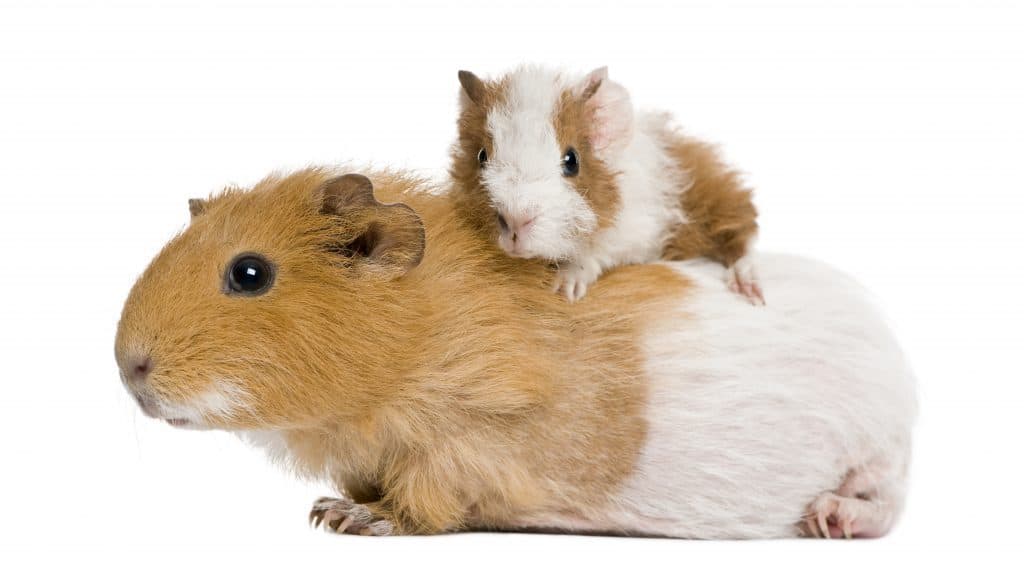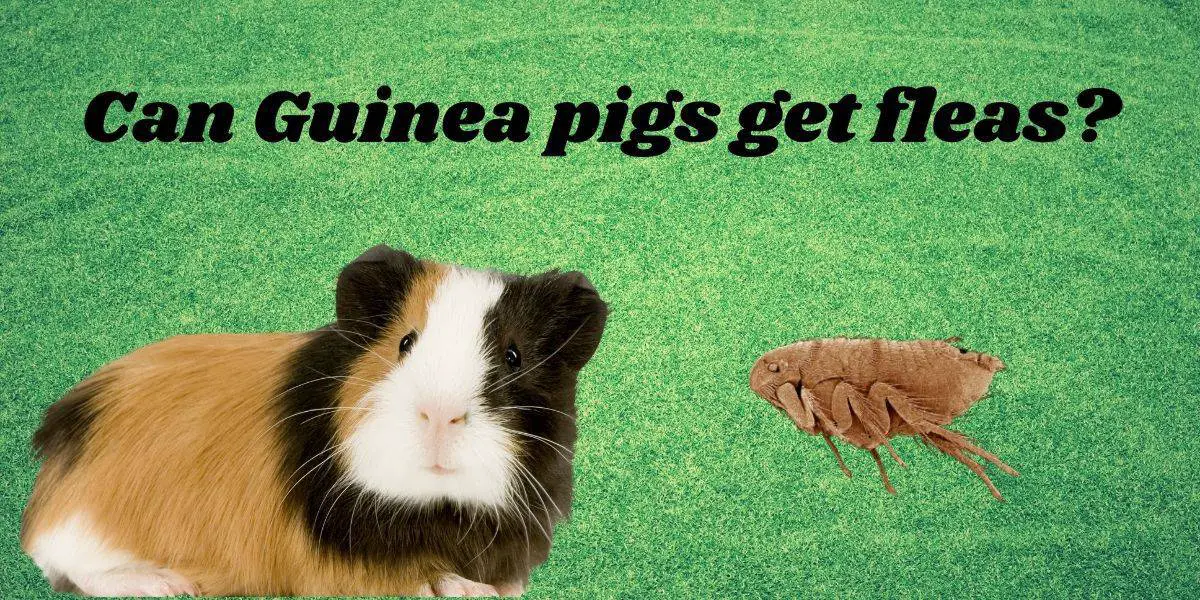Table of Contents
Is your guinea pig scratching just that little bit too often?
You may think that fleas are a problem for cats and dogs and your fluffy pristine little friend could never be a target for those bloodthirsty suckers!
However, (you have to know this) fleas can and will go for anything warm-blooded and that will include your guinea pig. Tough they are not primary hosts for fleas, guinea pigs are not susceptible to catching fleas, but if untreated, the problem can quickly become an entrenched infestation that stresses your pet. Worse still, fleas can become a recurrent problem for your guinea pig and these little parasites can spread to other pets and even the humans in the household.
In this article, we will assist you in identifying the signs and symptoms of fleas in guinea pigs and how you can eradicate them from your pet once and for all.
Well also ensure that you can keep your vigilance high by alerting you to other key guinea pig parasites so you can keep your guinea pigs protected as best as you can.
How do guinea pigs catch fleas?
There are over 2500 different flea species, many of which are more or less adapted to a specific kind of host, like a cat, dog, or rat. With a primary host, the fleas can feed and reproduce readily, but secondary hosts are a little more work.
Guinea pigs simply catch fleas by being in an area where fleas are present. Given that a mature flea has a jumping distance of over a foot in length, it is not hard to see that a dog, cat, or person who is carrying them can be a source of spread to your guinea pig.
Cat fleas are the predominant type of flea even in dogs and these fleas will likely target your guinea pig too.
Intercurrent illness and general poor health can also make your guinea pig a target for fleas and other parasites too.

The signs of flea infestation you need to watch out for in your guinea pig.
Take the time to observe your guinea pig closely and these signs of fleas will be unmistakable.
- Your guinea pig has intense repeated scratching and biting at their fur – flea bites are itchy and painful because of the saliva that is released by the flea as it feeds.
- Your normally relaxed guinea pig is restless – the irritation that comes from multiple flea bites leaves your guinea pig unsettled.
- The guinea pig is weak and lethargic – this is caused by anemia from repeated flea bites.
- Sore and inflamed skin around the guinea pig’s neck and ears. – ectoparasitic infections like fleas causes thickening and inflammation of the skin. If severe, this can lead to hair loss and a mange-like appearance.
It is probably easy to dismiss isolated episodes of biting and scratching, but you need to take a closer look at your pet examining its fur and skin if they are recurrent. Plucking and combing the hairs of the guinea pigs may turn up identifiable fleas, their waste, or their eggs.
Bring sweet relief to your guinea pig by tackling fleas promptly.
Don’t pass by a flea problem as it will only worsen. Where you have one flea you have to eradicate all fleas taking care to avoid chemicals and products that could harm your guinea pig. Here are our top tips for getting rid of fleas in guinea pigs:
- Only use guinea pig-friendly products – these ivermectin or pyrethrin-based products (powders, shampoos, and sprays) are specifically formulated for guinea pigs.
- Wash your guinea pig before applying treatments – applying the treatment to clean debris-free skin allows the treatments to work more effectively.
- All guinea pigs need to undergo treatment at the same time – otherwise, you run the risk of recurrence.
- Thoroughly clean their housing and dispose of beddings and toys that could be infested – anything that was in contact with the fleas should be cleaned or removed.
- Other pets in your house require species-specific treatment – again species-specific preparations are needed.
Other infestations and parasites can also affect your guinea pigs.
You should also consider other ectoparasites that could be causing an infestation in your guinea pigs. The most common parasites in guinea pigs include:
- Mites – mites are a nasty pest with the Trixacarus or scaroptid mite producing the most severe infestation in guinea pigs. This creature burrows into the skin of the guinea pig producing intense itching, hair loss, inflammation, and scaling. The symptoms can be so severe that a guinea pig suffers seizures.
- Lice – these creatures feed on dead skin on the guinea pig and attach themselves to the hair shaft of the guinea pig fur. They deteriorate the coat of the animal and can cause hair loss and crusting.
- Ticks – ticks are another parasite that may be encountered in guinea pigs with deteriorated health. They are best removed by the vet as they can be difficult to properly extract and if their mouthparts are retained they will cause infection.
Rounding up.
Fleas and other parasites can be a real drain on your guinea pig’s health so timely, thorough, and persistent treatment is key to getting on top of the situation.
It can be difficult to keep these parasites at bay if you have an outdoor-loving dog or cat, so some owners will treat their guinea pigs prophylactically with shampoo or other anti-flea treatment.
If in doubt or the symptoms in your guinea pig are severe, always seek the advice of your veterinarian.




